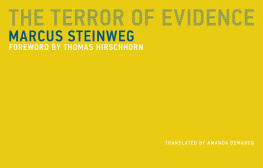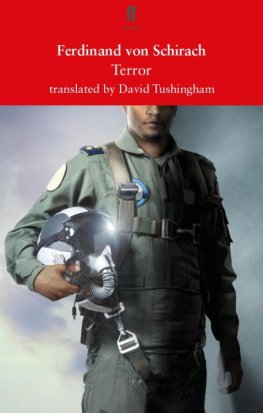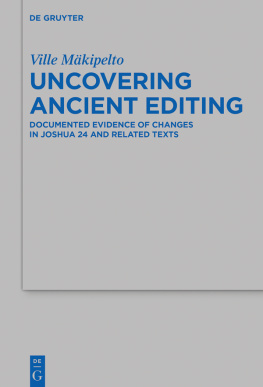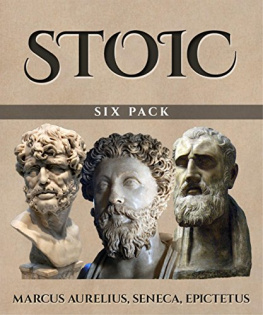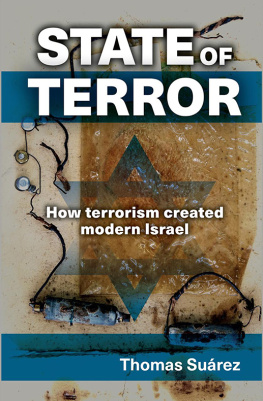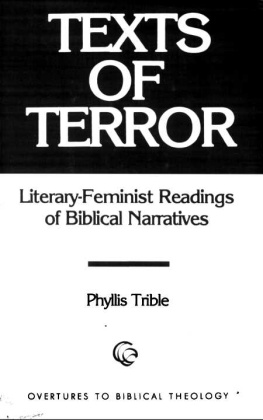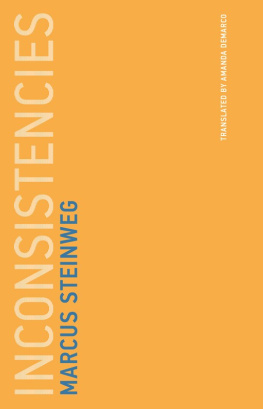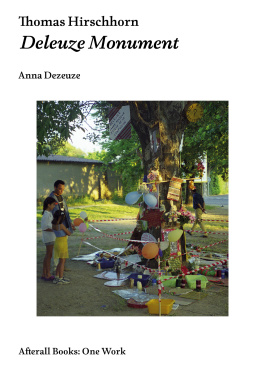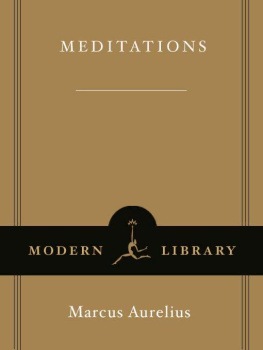Untimely Meditations
1.The Agony of Eros
Byung-Chul Han
2.On Hitlers Mein Kampf: The Poetics of National Socialism
Albrecht Koschorke
3.In the Swarm: Digital Prospects
Byung-Chul Han
4.The Terror of Evidence
Marcus Steinweg
The Terror of Evidence
Marcus Steinweg
foreword by Thomas Hirschhorn
translated by Amanda DeMarco
The MIT Press
Cambridge, Massachusetts
London, England
This translation and foreword 2017 Massachusetts Institute of Technology
Originally published as Evidenzterror in the series Frhliche Wissenschaft by Matthes & Seitz Berlin: Matthes & Seitz Berlin Verlagsgesellschaft mbH, Berlin 2015. All rights reserved.
All rights reserved. No part of this book may be reproduced in any form by any electronic or mechanical means (including photocopying, recording, or information storage and retrieval) without permission in writing from the publisher.
This book was set in PF Din Text Pro by Toppan Best-set Premedia Limited. Printed and bound in the United States of America.
Library of Congress Cataloging-in-Publication Data
Names: Steinweg, Marcus, 1971- author. | DeMarco, Amanda, author.
Title: The terror of evidence / Marcus Steinweg ; foreword by Thomas Hirschhorn ; translated by Amanda DeMarco.
Other titles: Evidenzterror. English
Description: Cambridge, MA : MIT Press, [2017] | Series: Untimely meditations | Includes bibliographical references.
Identifiers: LCCN 2016034154 | ISBN 9780262533430 (pbk. : alk. paper)
eISBN 9780262339889
Subjects: LCSH: Philosophy and civilization. | Arts--Philosophy.
Classification: LCC B59 .S7413 2017 | DDC 190--dc23 LC record available at https://lccn.loc.gov/2016034154
ePub Version 1.0
Deux excs: exclure la raison, nadmettre que la raison.
Blaise Pascal
Marcus Steinwegs Hardcore Thinkingwith a Light Heart
One day during summer 2013 at Forest Houses in the South Bronx, at the Gramsci Monument where Marcus Steinweg held seventy-seven Daily Philosophical Lectures, titled: How to Be Critical?, What Is Truth?, Romantic Shit, or What Does It Mean to Be a Philosopher Today?, one of the residentsa daily visitor of the Gramsci Monumentstood up and addressed him: How can you, Marcus, declare God is dead to us for whom religion is important, to us who need religion in our daily lives? Serious and calm, Marcus Steinweg answered how important, even crucial, it is to himas a philosopherto think without safeguards and without religion. How important it is to himas a philosopherto understand thinking as an act of losing ones grip and how philosophy needs to be an act of absolute freedom beyond ideology or dogma. He explained that thinkings only chance to go beyond an opportunistic idea, simplified opinion or reductive ideology is by including overcomplexity and vulnerability. He explained that God is dead means that the absolute Judge, the one who designates the guilty, is dead. Its a matter not of guilt but of responsibility. He explained that real thinking has no certitude, no comfort or guaranty. God is dead doesnt mean that there is no meaning; rather, what used to be unique has been replaced by an overwhelming amount of meanings. Meaning is no longer single and solid; it has become a construction of thousands of safeguards. And philosophers cant use safeguards, he insisted. The daily visitor understood his point immediately and remained truthful and engaged to the very last lecture.
This anecdote points out the power and radicalism of Marcus Steinwegs thinking, his sovereignty in his practice of philosophy and his self-understanding as a philosopher. His capacity to implicate the other is beautiful, bright, precise, and logical, grounded in everyday questions, which to him are always big questions. Speaking sharply and generously, Marcus Steinweg has the knowledge and credibility that can make someoneactually anyonelove philosophy, just because he loves it himself. He has the charisma to reach the Other, the one whoperhapsdoes not understand, the one who is skeptical, the one who still doubts. Marcus Steinweg is able to share this passion every day, every moment, under any circumstancewith and for the Other. I have known Marcus Steinweg since 1998, when we met in Cologne during the preparation of my exhibition Rolex etc., Freundlichs Aufstieg und Skulptur-Sortier-Station-Dokumentation at Museum Ludwig. We became friends, and I invited him to contribute lectures and texts to many projects of mine such as Bataille Monument, Swiss Swiss-Democracy, 24hFoucault, or The Bijlmer Spinoza-Festival. His commitment and engagement to make philosophy the corethe hardcoreof life reflects his competence, and its outcome is and will be important for him, for me, and for philosophy and the history of philosophy.
Marcus Steinweg and I together created the notion of Friendship between Art and Philosophy. This idea is based on the conviction that art and philosophy are movements that reach beyond the historical moment in which they were conceived. Art and philosophy share notions such as headlessness, resistance, courage, and hope, and interrogations such as How to give form?, How to conceive a concept?, How to create truth?, and How to create a universal truth? Friendship between Art and Philosophy keeps the fire going, and we keep the flame alive. Friendship also means learning from each other. I learned about the absolute love of philosophyor artand how this love can determine all decisions. Art and philosophy sometimes share similar dynamics, graceful moments of encounters in concepts and forms. I learned from Marcus Steinweg thatas a philosopher and as an artistwe have to be ready and always first to pay the price for our work, for our thoughts, for our position, for our form. I learned from him not to be disappointed by realitythat, to the contrary, the disappointing reality must absolutely be the field where thinking, forging a position, and giving form must be asserted in a gesture of emancipation. I learned from Marcus Steinweg that nonsense is important, not as counterpoint to sense but as nonsense in itself. I witnessed at the Gramsci Monument and at numerous other venues that, through thinking, Marcus Steinwegs philosophy can reach the nonexclusive, can touch the universe, can interrogate the other , and finally can implicate him.
In the book you hold in your hands the aphorisms reflect the same clarity, exactitude, and evidence of Marcus Steinwegs inclusive and therefore outstanding way of explaining his concepts. This book is a kind of lexicon or atlas of terms such as sex, desubjectivation, misunderstanding. The table of contents is in itself excessive and ambitious. It invites me, as reader, to find terms that interest me, or I can turn to any page randomly or use my own search criteria. All terms float freely like single verses of a never-ending poem. Nothing is simplified or abbreviated. Every term is new and enlightened in its own singularity, in its density, explosiveness, and charge. As an artist, to read Marcus Steinwegs definition of artTo respond to the no-form with form, without neutralizing itis wonderful and truly helpful. The philosopher breaks, hammers, grinds what is not essential, what is not crucial, always insisting with the hypercomplexity and malleability of each term. Marcus Steinweg builds a sculpture, a sculpture of notions, never finished yet active, dynamic, and always moving. He sets fire and ignites an acceleration that urges me to think more, to think more clearly, to think more powerfully, to think faster, to think beyond. Marcus Steinwegs hardcore philosophy compels me to think with a light heart and to think for myself. What could be more beautiful?

